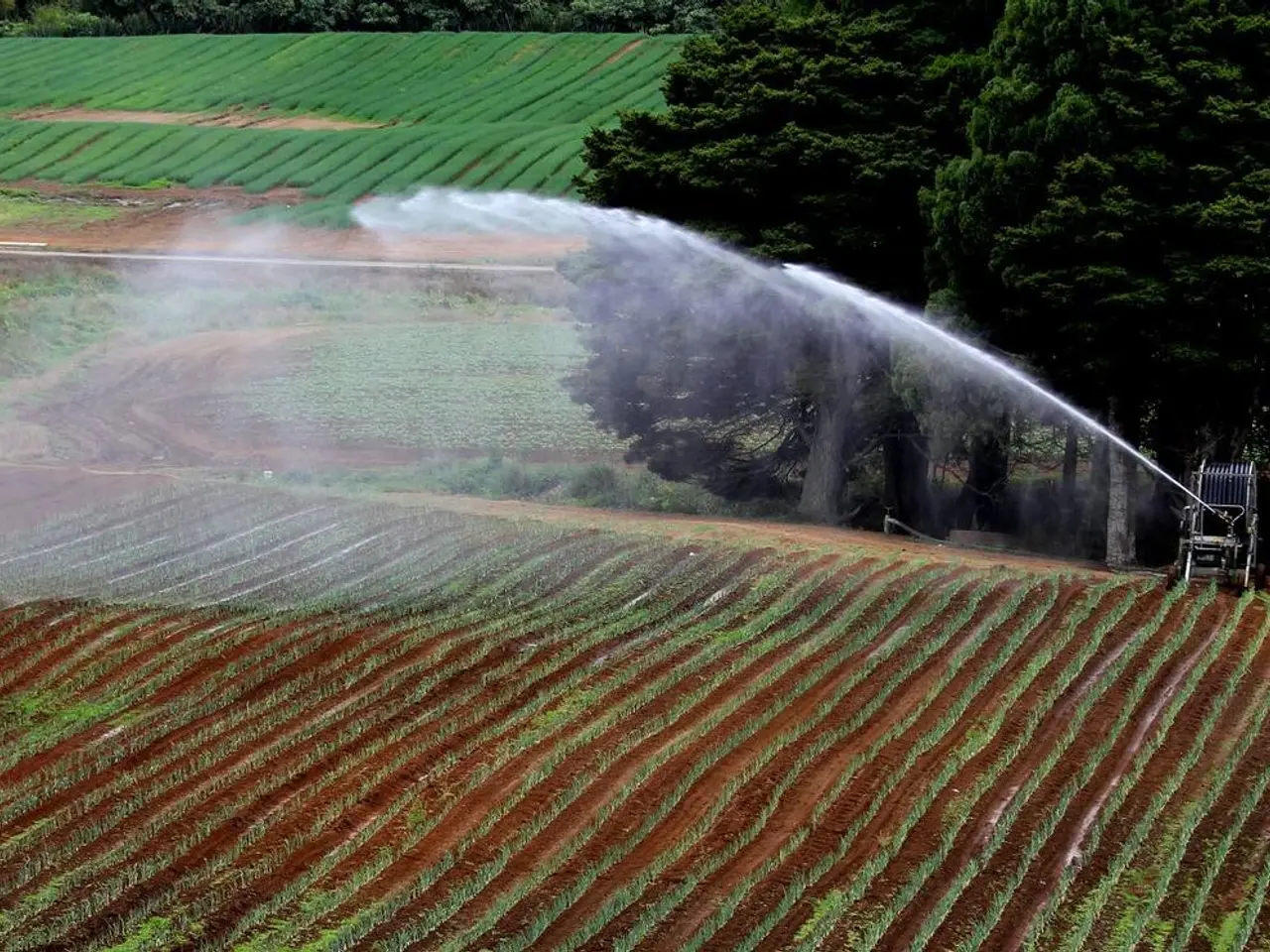"Rice crops in The Gambia are being devastated by an influx of salt, leaving the nation without any means of assistance"
In The Gambia, a growing concern is the saltwater intrusion affecting rice farmers across the country. Aja Fatou Sanneh, a farmer located three kilometers from the sea, has seen her one-hectare farm severely impacted by the issue.
Karamo Minteh, the agriculture ministry's regional agricultural director for North Bank, acknowledges the deterioration of flood protection built under earlier projects. In response, he plans to expand the distribution of ISRIZ-7, a rice variety tolerant to saltwater, to other parts of the country. The ministry is also promoting the application of lime to soil as a means of counteracting salt.
However, experts and farmers alike criticize the government's response as sporadic and insufficient. Some believe the measures taken by the ministry are piecemeal in comparison to the scale of the crisis, with projects often entirely dependent on donors for funding. Kemo Fatty, the founder of Green-Up Gambia, is among those who criticize the government for lacking a national strategy to address saltwater intrusion.
The sea has eroded the coast, allowing saltwater to enter rivers previously considered freshwater zones. This has led to a significant decrease in rice cultivation areas and yields. According to the Gambia's National Environment Agency's 2024 assessment, there was a 42% decrease in rice cultivation areas and a 41% decline in yields between 2009 and 2023, due to salt intrusion. The assessment warns that 30% of the country's rice fields could become unusable in the next decade due to salt intrusion.
Existing flood protection, such as dykes and levees, are often in disrepair. The north-western Lower Niumi district is experiencing saltwater intrusion, causing the soil to become unfit for growing rice. Farmers like Borry Touray, from Sankandi, and Binta Drammeh, from the village of Jataba, south of Sankandi, express concern about the impact of saltwater intrusion on their ability to provide for their families.
Sonko, a salinisation expert, suggests urgent solutions are required to address problems in The Gambia's freshwater zones, including measures to flush out saltwater and the application of desalinated water to fields. The economic toll of rice yield losses linked to climate change and salinity has already been severe, estimated at GMD 400 million (USD 5.5 million).
The Gambia imports over 90% of its rice, according to the UN Food and Agriculture Organization. The issue of saltwater intrusion is not unique to The Gambia, as it is also severely hampering rice farming across Senegal's Casamance region. This has forced communities to abandon once-productive valleys and contributed to youth migration to Europe, according to the International Organization for Migration.
Despite the challenges, some farmers are persisting with rice cultivation, hoping for a revival of rice production with proper intervention. Sanneh's rice production has decreased significantly, from filling 15 bags to less than three, due to the saltwater intrusion. However, she remains hopeful for a solution.
The search results do not provide information on the name of the organization responsible for implementing a national strategy to combat saltwater intrusion in The Gambia. It remains to be seen how the government will address this pressing issue and ensure the sustainability of rice production in the country.
Read also:
- Understanding Hemorrhagic Gastroenteritis: Key Facts
- Stopping Osteoporosis Treatment: Timeline Considerations
- Tobacco industry's suggested changes on a legislative modification are disregarded by health journalists
- Expanded Community Health Involvement by CK Birla Hospitals, Jaipur, Maintained Through Consistent Outreach Programs Across Rajasthan








